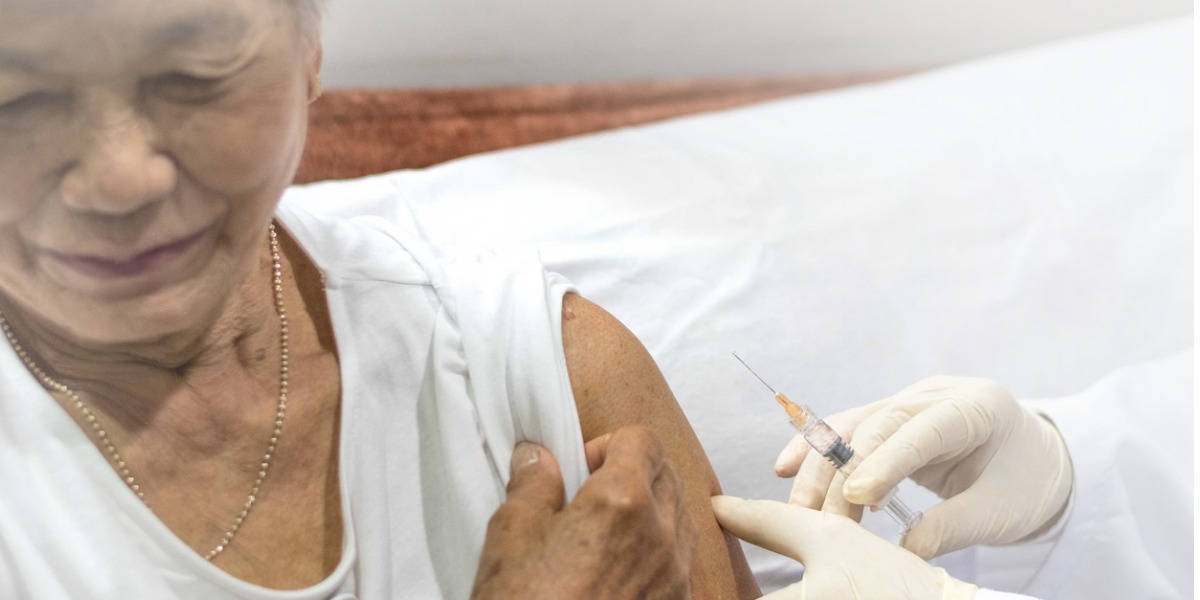
Since the start of 2019, the Center for Disease Control and Prevention has confirmed 880 cases of measles across 24 states. This is certainly alarming information for many families. Children who are not up to date on the MMR are most at risk, as are people with compromised immune systems. But what about our vulnerable seniors? Are they at risk of contracting measles, and should they get the measles vaccination? As with most things medically related, the answer can vary. Let’s examine the facts.
Should a Senior Get the MMR Vaccination?
According to the CDC, people born before 1957 were likely exposed to measles as children. At that time, the disease was quite prevalent, vaccinations did not exist to protect people from exposure, and the rate of exposure was high. A person who was exposed to the measles likely has natural, lifetime immunity. As a result, the measles vaccination usually would not be necessary.
So, are there occasions when a senior needs the measles vaccination? According to the CDC, there are. Here’s how that breaks down.
A senior born in another country, someone who was never exposed to measles or a person born in 1957 or later would, in most cases, be advised to receive at least one dose of the MMR – a vaccination that protects against measles, mumps and rubella. If a doctor is unsure, a simple blood test can determine the level of antibodies present in the bloodstream. The information from this test can help a doctor determine if a senior needs the MMR. If the vaccination is doctor recommended, this is a covered expense under Medicare and most insurance companies, so cost should not preclude a senior from getting vaccinated.
Measles Prevention Tips for Family Caregivers
If you’re a family caregiver, this topic may have you feeling a little confused. Should you ask about the measles vaccination, and what else can you do to protect your loved one from this dangerous disease?
The most important thing to remember is that there is no reason to panic. There’s a very good chance your loved one has natural immunity, and if they don’t, a simple vaccination can help them to stay safe. Here are a few more tips that can help:
- During the senior’s next doctor’s visit, ask a few questions. Discuss measles, your loved one’s health history and any other specific concerns you might have. Ask about the MMR and if it’s appropriate for your loved one; or consider requesting a blood test to check for immunity. This is also a good time to discuss other important vaccinations and ensure your loved one is up to date on all of them.
- Many seniors lack immunization records since digital records were essentially non-existent for much of their lives. If your loved one doesn’t have an immunization record, start one. Keep this record safe and updated, and share it with any healthcare providers the senior sees.
- While vaccinations are the most highly recommended way to keep a senior safe from communicable diseases, there’s a lot of value in healthy day-to-day living practices too. Encourage your loved one to wash their hands at mealtime and after spending time in a public place. Watch their diet to make sure it’s balanced and nutritious. Encourage exercise and healthy activity. Keep the mind busy with engaging puzzles, games or other fun activities.
It is normal to feel a sense of concern and urgency when you hear about an outbreak of a sometimes life-threatening disease like measles, but educating yourself and taking a proactive approach is the best way to stay safe and healthy. Make sure your family is vaccinated unless your loved one has natural immunity, and practice healthy living standards too. If you have further questions, reach out to your healthcare professional so they can help.
There is no ads to display, Please add some

